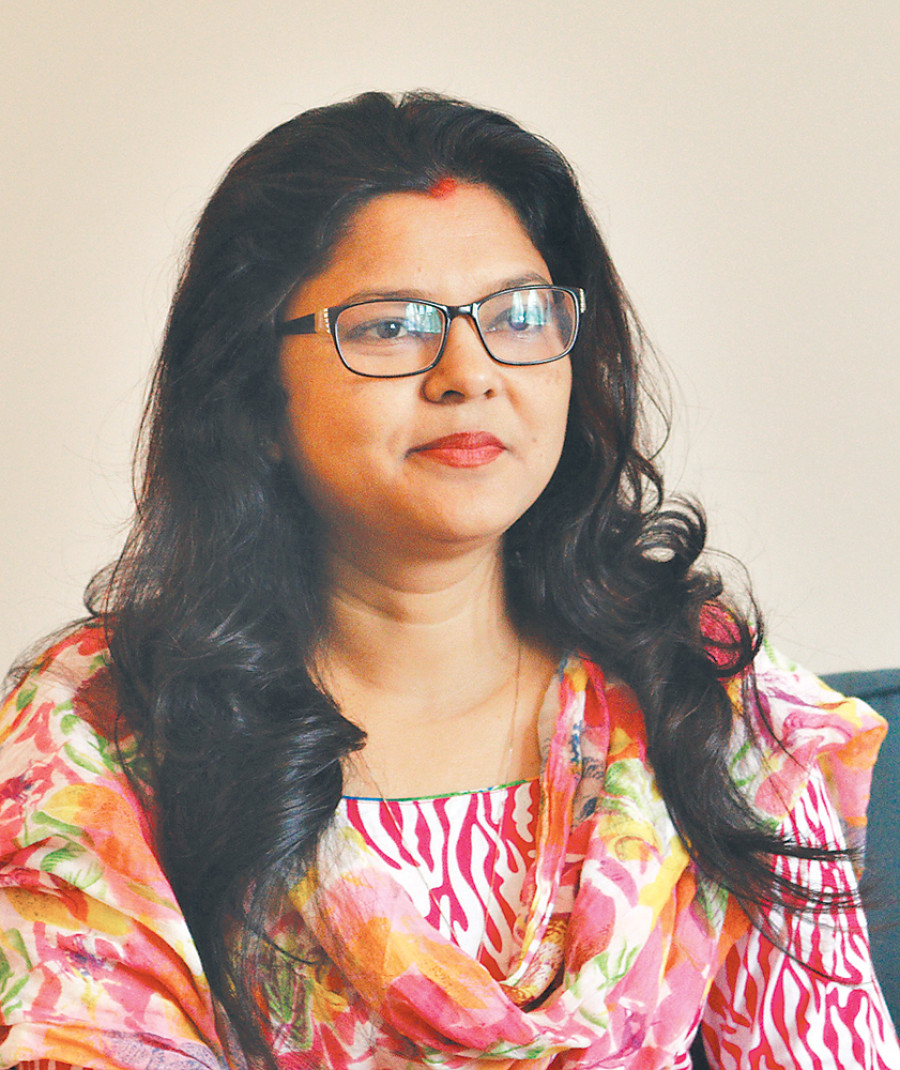Entertainment
Recanting epics for the modern reader
Neelam Karki, who writes under the nom-de-plume Niharika, is a novelist and poet who has penned books such as Beli and Hawaan. Her latest book, Cheerharan, has been short-listed for this year’s edition of the prestigious Madan Puraskar—Nepal’s highest literary honour. In this interview with the Post’s Samikshya Bhattarai, Karki talks about the book that propelled her into the limelight and her journey from an impoverished village to the literary centre stage. Exceprts:
Samikshya Bhattarai
Neelam Karki, who writes under the nom-de-plume Niharika, is a novelist and poet who has penned books such as Beli and Hawaan. Her latest book, Cheerharan, has been short-listed for this year’s edition of the prestigious Madan Puraskar—Nepal’s highest literary honour. In this interview with the Post’s Samikshya Bhattarai, Karki talks about the book that propelled her into the limelight and her journey from an impoverished village to the literary centre stage. Exceprts:
Tell us little bit about your new book Cheerharan and the inspiration behind it?
Cheerharan is a novel based on a story from the epic Mahabharata. It attempts to draw a contrast between the times we live in, and the times the Mahabharata takes place in. As for the inspiration, I grew up in a very rural area and at night, in place of bed time stories, my mother would tell us tales from the Mahabharata. The tales were also very intertwined with our local culture. As I grew up, I began to associate real life events with events from the Mahabharata. Stories of children being thrown away after being birthed reminded me of Kunti, and rape cases reminded me of Draupadi’s cheerharan, and so on.
How does it feel to be nominated for the prestigious Madan Puraskar?
When the seven-book shortlist was announced, I was mourning my mother-in-law who had just passed away. It seems no matter how good news you may get, in times of real sadness, it does nothing to cheer you up. There’s a time to be happy and time to be sad. So, I wasn’t able to be as happy as I should have been at the time. But I was still very proud.
How did you first come to love books?
Besides the Mahabharata stories that my mom used to tell me, I would read the Swasthani to friends and people from my village. I also loved to listen to folk tales told by others and found myself drawn to history books. I would constantly seek out stories. Because I lived in a village, we didn’t have many books, so when I finished one book, I would go out and seek out books from my seniors. One memory that specifically comes to mind is walking an hour to ask for a copy of Munamadan. The book was very tattered and was missing the last few pages, and for a long time, I was left wondering what had happened in the end.
What was the last book you read and how did you like it?
The last book I read was Rajeshwar Devkota’s recently-released Atma Katha. It uses simple language to discuss complex subjects and is very honest, which I find to be quite refreshing.
Which book are you reading next?
I plan on reading the books short-listed for the Madan Pusarakar and the Padam Shree.
What is the one book you recommend as a must-read?
A book I would recommend is Madan Mani Dixit’s Mahdavi. I recommend it because its characters, such as Bishwamitra, Galav, Yayati and Madhavi, are all multi-layered and so dynamic. From its stories we can learn a lot about politics, society, culture and feminism from the time period that it was written in.
What is good writing for you? What would you say makes a good writer?
Good writing to me is determined by the language, and the story. It is important to me how the story is told and evolves over the course of the book.
The characters should be dynamic and have range. So presentation is obviously a huge one for me, when I determine whether I like a book or not.
As for what makes a good writer, I enjoy reading authors who can convey ideas and thoughts and present them in an enjoyable fashion. I don’t think there’s one specific standard for what makes a good writer. I think it’s up to the reader to decide.




 11.71°C Kathmandu
11.71°C Kathmandu










